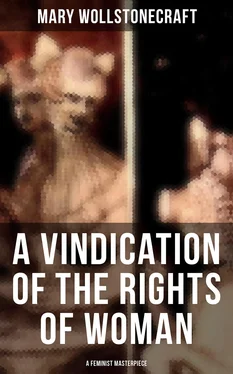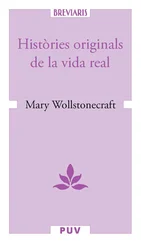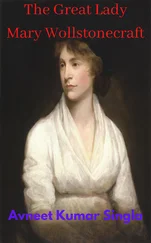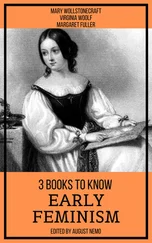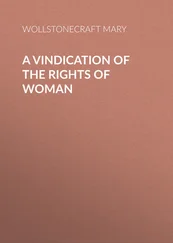In 1796 she revived or improved an acquaintance which commenced years before with Wm. Godwin, author of “Political Justice,” and other works of great notoriety. Though they had not been favourably impressed with each other on their former acquaintance, they now met under circumstances which permitted a mutual and just appreciation of character. Their intimacy increased by regular and almost imperceptible degrees. The partiality they conceived for each other was, according to her biographer, “In the most refined style of love. It grew with equal advances in the mind of each. It would have been impossible for the most minute observer to have said who was before, or who after. One sex did not take the priority which long established custom has awarded it, nor the other overstep that delicacy which is so severely imposed. Neither party could assume to have been the agent or the patient, the toil-spreader or the prey in the affair. When in the course of things the disclosure came, there was nothing in a manner for either to disclose to the other.”
Mary lived but a few months after her marriage, and died in child-bed; having given birth to a daughter who is now known to the literary world as Mrs. Shelly, the widow of Percy Bysche Shelly.
We can scarcely avoid regret that one of such splendid talents, and high toned feelings, should, after the former seemed to have been fully developed, and the latter had found an object in whom they might repose, after their eccentric and painful efforts to find a resting place—that such an one should at such a time, be cut off from life is something which we cannot contemplate without feeling regret; we can scarcely repress the murmur that she had not been removed ere clouds darkened her horizon, or that she had remained to witness the brightness and serenity which might have succeeded. But thus it is; we may trace the cause to anti-social arrangements; it is not individuals but society which must change it, and that not by enactments, but by a change in public opinion.
The authoress of the “Rights of Woman,” was born April 1759, died September 1797.
That there may be no doubt regarding the facts in this sketch, they are taken from a memoir written by her afflicted husband. In addition to many kind things he has said of her, (he was not blinded to imperfections in her character) is, that she was “Lovely in her person, and in the best and most engaging sense feminine in her manners.”
TO M. TALLEYRAND PERIGORD, LATE BISHOP OF AUTUN.
Table of Contents
Sir:—
Having read with great pleasure a pamphlet, which you have lately published, on National Education, I dedicate this volume to you, the first dedication that I have ever written, to induce you to read it with attention; and, because I think that you will understand me, which I do not suppose many pert witlings will, who may ridicule the arguments they are unable to answer. But, sir, I carry my respect for your understanding still farther: so far, that I am confident you will not throw my work aside, and hastily conclude that I am in the wrong because you did not view the subject in the same light yourself. And pardon my frankness, but I must observe, that you treated it in too cursory a manner, contented to consider it as it had been considered formerly, when the rights of man, not to advert to woman, were trampled on as chimerical. I call upon you, therefore, now to weigh what I have advanced respecting the rights of woman, and national education; and I call with the firm tone of humanity. For my arguments, sir, are dictated by a disinterested spirit: I plead for my sex, not for myself. Independence I have long considered as the grand blessing of life, the basis of every virtue; and independence I will ever secure by contracting my wants, though I were to live on a barren heath.
It is, then, an affection for the whole human race that makes my pen dart rapidly along to support what I believe to be the cause of virtue: and the same motive leads me earnestly to wish to see woman placed in a station in which she would advance, instead of retarding, the progress of those glorious principles that give a substance to morality. My opinion, indeed, respecting the rights and duties of woman, seems to flow so naturally from these simple principles, that I think it scarcely possible, but that some of the enlarged minds who formed your admirable constitution, will coincide with me.
In France, there is undoubtedly a more general diffusion of knowledge than in any part of the European world, and I attribute it, in a great measure, to the social intercourse which has long subsisted between the sexes. It is true, I utter my sentiments with freedom, that in France the very essence of sensuality has been extracted to regale the voluptuary, and a kind of sentimental lust has prevailed, which, together with the system of duplicity that the whole tenor of their political and civil government taught, have given a sinister sort of sagacity to the French character, properly termed finesse; and a polish of manners that injures the substance, by hunting sincerity out of society. And, modesty, the fairest garb of virtue has been more grossly insulted in France than even in England, till their women have treated as PRUDISH that attention to decency which brutes instinctively observe.
Manners and morals are so nearly allied, that they have often been confounded; but, though the former should only be the natural reflection of the latter, yet, when various causes have produced factitious and corrupt manners, which are very early caught, morality becomes an empty name. The personal reserve, and sacred respect for cleanliness and delicacy in domestic life, which French women almost despise, are the graceful pillars of modesty; but, far from despising them, if the pure flame of patriotism have reached their bosoms, they should labour to improve the morals of their fellow-citizens, by teaching men, not only to respect modesty in women, but to acquire it themselves, as the only way to merit their esteem.
Contending for the rights of women, my main argument is built on this simple principle, that if she be not prepared by education to become the companion of man, she will stop the progress of knowledge, for truth must be common to all, or it will be inefficacious with respect to its influence on general practice. And how can woman be expected to co-operate, unless she know why she ought to be virtuous? Unless freedom strengthen her reason till she comprehend her duty, and see in what manner it is connected with her real good? If children are to be educated to understand the true principle of patriotism, their mother must be a patriot; and the love of mankind, from which an orderly train of virtues spring, can only be produced by considering the moral and civil interest of mankind; but the education and situation of woman, at present, shuts her out from such investigations.
In this work I have produced many arguments, which to me were conclusive, to prove, that the prevailing notion respecting a sexual character was subversive of morality, and I have contended, that to render the human body and mind more perfect, chastity must more universally prevail, and that chastity will never be respected in the male world till the person of a woman is not, as it were, idolized when little virtue or sense embellish it with the grand traces of mental beauty, or the interesting simplicity of affection.
Consider, Sir, dispassionately, these observations, for a glimpse of this truth seemed to open before you when you observed, “that to see one half of the human race excluded by the other from all participation of government, was a political phenomenon that, according to abstract principles, it was impossible to explain.” If so, on what does your constitution rest? If the abstract rights of man will bear discussion and explanation, those of woman, by a parity of reasoning, will not shrink from the same test: though a different opinion prevails in this country, built on the very arguments which you use to justify the oppression of woman, prescription.
Читать дальше
